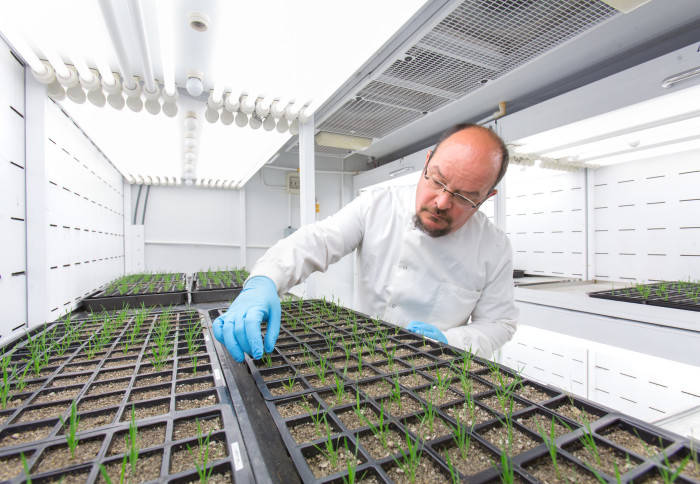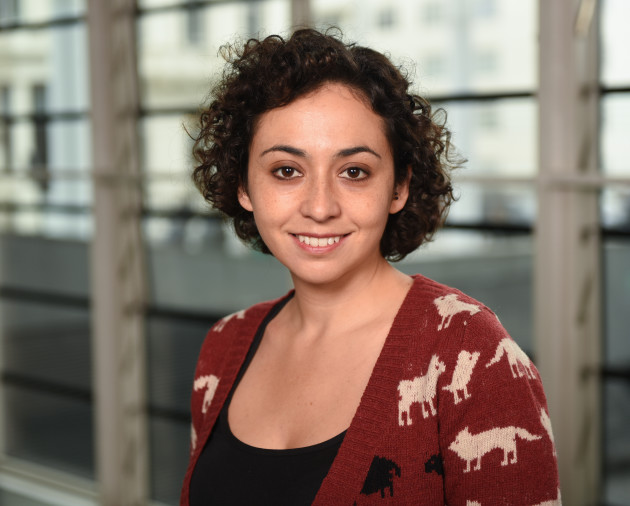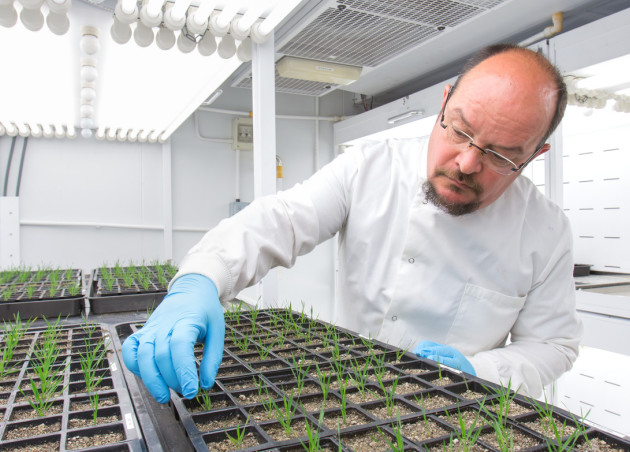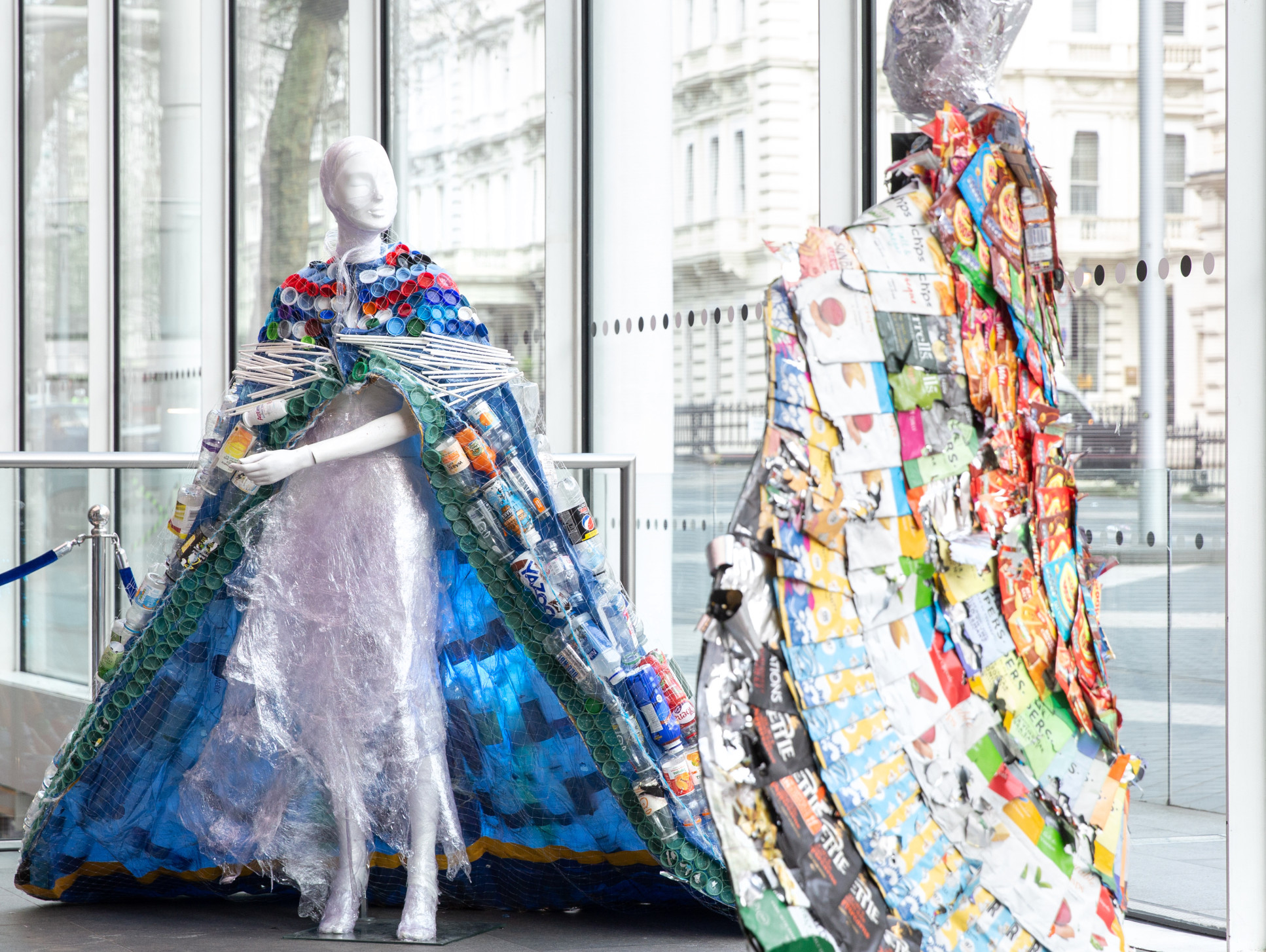Funding interdisciplinary projects to solve today’s grand challenges

Professor Vincent Savolainen in the plant genomics lab
The Institute for Molecular Science and Engineering (IMSE) has announced the winners of its 2022 competition for seed funding.
All these projects use molecular scale science to solve societal and industrial challenges. The theme of the competition this year was sustainability and the circular economy.
IMSE’s funding is intended to kickstart the development of new research directions, with a view to developing larger funding proposals in future. These projects are cross-disciplinary collaborations within Imperial and with external partners.
Upcycling plastic waste into battery parts
 Currently about 80% of plastics produced in the world are discarded into the environment, including many which are recyclable, such as PET (polyethylene terephthalate), used in bottles and textile ‘polyester’ fibres. In a circular economy, this waste would ideally be used to produce valuable materials.
Currently about 80% of plastics produced in the world are discarded into the environment, including many which are recyclable, such as PET (polyethylene terephthalate), used in bottles and textile ‘polyester’ fibres. In a circular economy, this waste would ideally be used to produce valuable materials.
IMSE is funding a seed project by Dr Maria Crespo at the Department of Chemical Engineering and Dr Aigerim Omirkhan and Dr Ieuan Seymour at the Department of Materials to upcycle waste PET into battery anodes. Dr Crespo is using anodes made of an upcycled carbon-tin composite to develop the next-generation of fast-charging battery systems, which are based on sodium rather than lithium cells.
Sustainable palm agriculture at scale
 African countries are currently investing heavily in expanding palm agriculture. These societies need to ensure this is done sustainably, both environmentally and socio-economically. This requires identifying the critical elements of biodiversity for these crops, e.g., microbes, pollinators and pests.
African countries are currently investing heavily in expanding palm agriculture. These societies need to ensure this is done sustainably, both environmentally and socio-economically. This requires identifying the critical elements of biodiversity for these crops, e.g., microbes, pollinators and pests.
IMSE is funding a project led by Professor Vincent Savolainen at the Department of Life Sciences and Dr Tilly Collins of the Centre for Environmental Policy, who will conduct the largest ever molecular-based inventory of below- and above-ground functional biodiversity of the palm agricultural system. The team will use environmental DNA technologies and novel automated field biosensors. This inventory will link agricultural management, soil functional diversity and resilience of production and socio-economic structures.
Designing plastics for recycling
 The UK Plastics Pact has a target of ensuring that plastic packaging will contain 30% recycled content by 2025. However, unlike glass and metals, plastics cannot be recycled indefinitely, as each recycling step degrades the long chain molecules, called polymers, that make up the material. Exactly how this happens, and how this affects the later biodegradability of plastics, is not well understood.
The UK Plastics Pact has a target of ensuring that plastic packaging will contain 30% recycled content by 2025. However, unlike glass and metals, plastics cannot be recycled indefinitely, as each recycling step degrades the long chain molecules, called polymers, that make up the material. Exactly how this happens, and how this affects the later biodegradability of plastics, is not well understood.
Dr Alice Banks of the Department of Life Sciences and Dr Koon-Yang Lee of the Department of Aeronautics have been awarded a seed funding grant to investigate the degradation patterns of the most common polymer types in single use plastics, polyethylene (PE) and polypropylene (PP). The aim is to learn to design plastics with specific patterns of biodegradable behaviour, so that they can be effectively recycled or composted.
Green light for printing organs and tissues
 3D printing methods are being adapted to include live cells, printed into structures with the complexity of natural biological systems. This technology could produce biomedical parts such as organs-on-chips or tissues.
3D printing methods are being adapted to include live cells, printed into structures with the complexity of natural biological systems. This technology could produce biomedical parts such as organs-on-chips or tissues.
3D bioprinting is difficult because the printing process uses light outside the visible spectrum to cure the resin into its high-resolution shape, and this usually kills living cells.
A seed funded project by Dr Ali Mohammed of the Dyson School of Design Engineering and Dr Laura Barter of the Department of Chemistry will develop a first-generation 3D printer that uses harmless visible green light to cure each layer of the resin as it is printed. The aim is to enable the printing of objects with CO2-fixing algae in them.
All the researchers involved have been invited to give IMSE seminars on their research. For updates, follow IMSE on Twitter. Imperial staff: if you want to be involved in IMSE’s work, become an affiliate.
Article text (excluding photos or graphics) © Imperial College London.
Photos and graphics subject to third party copyright used with permission or © Imperial College London.
Reporter
Dr Isabella von Holstein
Department of Computing